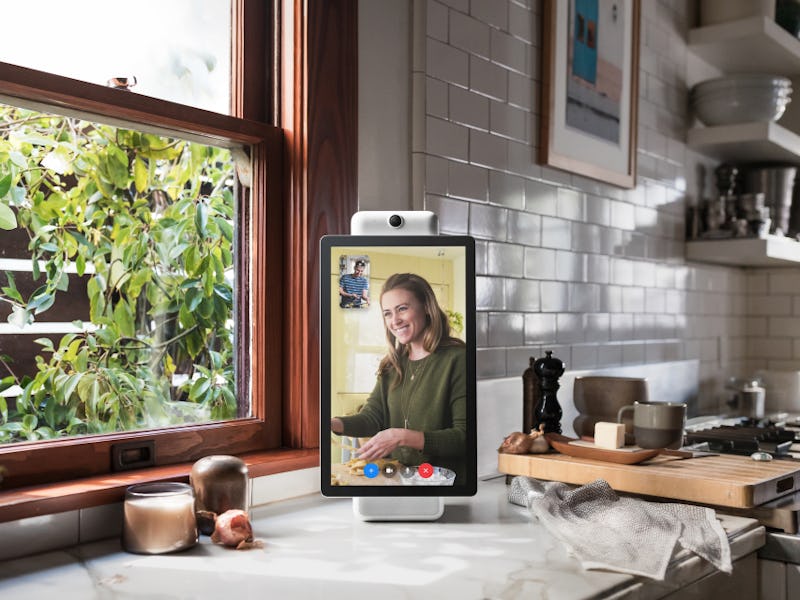Oh Good, Here's Another Way to Entrust Facebook With Personal Communication
Perfect timing!

Certainly, anyone who’s been paying attention looks at Facebook and thinks, “Now here, surely, is a company with which I can trust my most personal and intimate communications.” From its messaging tools to a benevolent plan to expand internet access, to an advertising business that’s resulted in absolutely no Congressional hearings whatsoever, their record as competent stewards of our personal data speaks for itself.
Fortunately, consumers who have grown tired of simply using Facebook’s apps and software to stay in touch with friends and loved ones now have an entirely new way to entrust the company with more personal communications than ever before. We’re speaking, of course, of the new Portal From Facebook, a video conferencing tool that uses smart technology and a wide screen to “make video chats feel less like a call, and more like you’re actually in the same room,” according to a press release.
It is, as many observers noted, an oddly timed announcement, given the massive breach the company disclosed last month that affected some 50 million accounts. As the technology entrepreneur and commentator Rurik Bradbury put it to Inverse, even if the tech is good the timing is, at best, “tone deaf.”
“I don’t see consumers in a hurry to put a Facebook camera inside their homes,” he said. “The main impact of this launch is to remind the public that the Facebook leopard has not changed its spots, and is still just as ravenous for fresh consumer data as it always has been.”
What the Portal by Facebook Does
Bradbury was hardly alone in his assessment. Medium’s Damon Beres said, “I can basically not imagine a worse time for Facebook to launch something like this,” and Bloomberg’s Shira Ovide wrote, “The company has apparently decided that now is the right time to persuade Americans to put Facebook microphones, data-harvesting technologies and video cameras inside their homes. To which I say — nope. And also, why?”
In Facebook’s defense, privacy takes center stage in the Portal’s announcement. You’ll be able to disable the camera, for example, and the hardware will ship with a camera cover (nice touch!). You’ll also be able to set up a passcode that can only be changed when you also input your Facebook password. Perhaps most notably, Portal data will be stored locally, as opposed to on Facebook’s servers.
Facebook doesn’t listen to, view, or keep the contents of your Portal video calls. Your Portal conversations stay between you and the people you’re calling. In addition, video calls on Portal are encrypted, so your calls are always secure.
For added security, Smart Camera and Smart Sound use AI technology that runs locally on Portal, not on Facebook servers. Portal’s camera doesn’t use facial recognition and doesn’t identify who you are.
Like other voice-enabled devices, Portal only sends voice commands to Facebook servers after you say, “Hey Portal.” You can delete your Portal’s voice history in your Facebook Activity Log at any time.
But as Bradbury pointed out, there’s perhaps no amount of precaution that would have been enough to get ahead of inevitable criticism over the announcement’s timing. Even at the height of product announcement season — Google could even roll out a pretty similar smart home device featuring a display tomorrow — being mad at Facebook could still wind up being the story of the week.
On the other hand, if you’ve been aching for a better video-conferencing tool that can sync to your Alexa, then today’s your lucky day. You can pre-order the Portal, which will ship for $199 or $349 for the Portal+, here.